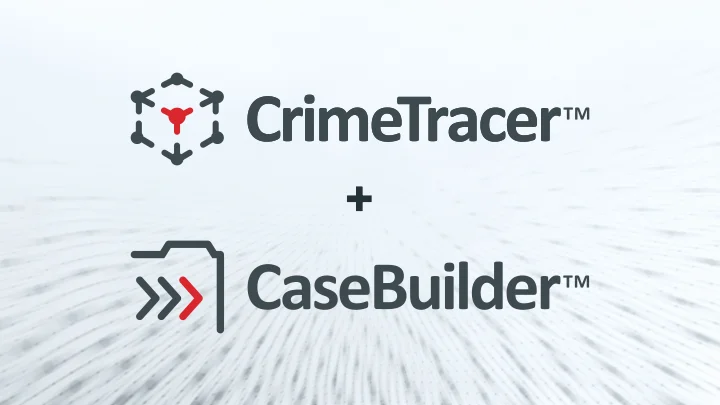Managing a tips and leads hotline is more than just staffing phones with people to answer and log calls.
A law enforcement tips and leads hotline is often the starting place of many investigations. The information gathered at this early stage may be critical in forming the foundation of an investigation, so every aspect—from workflow to staffing to technology—must work together.
Get it wrong at the hotline stage of the investigation and you may have no case to investigate. Even worse, a tip or lead may slip through unnoticed and germinate into a much more significant criminal or terrorism event.
How do you lock down the management of a law enforcement tips and leads hotline? There are three big decision points that give an agency the best chance to properly setup a hotline and ensure it receives the solid information needed to create investigative successes.
#1 Tips and Leads Call Taker Training
Tips and leads hotlines are usually staffed with experienced criminal investigators. In some cases, hotlines may be staffed with civilian call takers who, without proper training, can create a weak investigative process, allowing key pieces of intelligence to slip through the cracks.
Take, for example, the Parkland school shooting in Florida. The FBI Public Access Line (PAL) call takers received two calls warning them of the dangers Nikolas Cruz posed to the public months in advance of the February 14, 2018 event. The second of the two tips the FBI received contained specific, actionable intelligence, but was closed by the call taker and was not referred to local law enforcement.
A March 7, 2018 press release by the U.S. House of Representatives Committee on Oversight and Government Reform included the following statement related to the testimony from the deputy director of the FBI, David Bowdich:
“According to Deputy Director Bowdich, the caller provided sufficient information to the tip line for the FBI to launch a probe. He noted, however, that the call taker did not ask any standard investigative probing questions during the call.”
It is important to note that the FBI uses civilian call takers, not special agents, to answer the PAL calls. But to ask a probing investigative question, you need to have the training and experience to know what to ask and how to ask it to determine the veracity of the caller and the information being provided.
While there is no single answer—nor can or should we expect to capture 100% of actionable tips and leads—agencies that use civilian call takers must provide them with extensive and ongoing training, while supporting them by adding experienced law enforcement professionals to the hotline staff. The challenge? Both of these efforts require agencies to commit funds to their hotline budgets.
#2 Budgeting for Law Enforcement Tips and Leads Hotline Success
The law enforcement adage that “good police work costs money” couldn’t be more accurate. The FBI’s PAL tip line was designed around a time-saving model that focused on returning special agents to the field so they could conduct investigations—not answer the tip line. This decision unintentionally, yet effectively, removed the tip line as a critical and foundational part of the investigation.
Tip line staff are actually conducting investigative phone interviews, not simply collecting information from callers. Agencies need experienced criminal investigators embedded with the tip line staff to support them as they try to elicit the greatest investigative details from the callers.
Budget- and time-saving models have a way of getting it right only when everything goes well. To properly protect the public, agencies must always ensure their tip lines are effective before focusing on fiscal efficiency. To this end, agencies must budget in a way that properly supports the critical mission of their tip lines.
#3 Establishing a Tips and Leads Workflow that Works
The most significant lesson we can learn from the FBI PAL tip line staff not flagging the risk Nikolas Cruz posed is broadly related to investigative workflow. Whether a tip line is staffed with civilians or experienced criminal investigators, the right workflow enabled by the right investigation management software can significantly improve investigative outcomes. Look for law enforcement tips and leads hotline technology that can, at a minimum:
Perform automated de-confliction of people, places, and vehicles from all past cases within the tips and leads software.
This ensures criminal investigators will see all past incidents where the person, place or vehicle was mentioned and will allow investigators to review these incidents as part of a comprehensive overview that is used when formulating investigative findings and recommendations.
Record investigative conferrals made within and outside of the agency.
These referrals are investigative documents prepared by the investigator, approved by the supervisor, and incorporated within the tip or lead case folder to memorialize the investigative steps taken in a case. The absence of a conferral document in a case folder when the incident involves an outside agency with jurisdiction over the matter or an internal unit with investigative responsibility for the matter is an alert that work is missing and requires supervisory intervention.
Document supervisory review and approval of every document created in the tips and leads investigation management software.
Agencies need to commit to the basic premise that every tip and lead received has to be routed through an approval process to ensure a supervisor reviews and concurs with an investigator’s preliminary steps and investigative recommendations.
Establish minimum document creation and workflow requirements, based on the type of tip or lead created, within a case folder.
This ensures each tip or lead case folder has a minimum amount of investigative work performed and documented before a case closing can be submitted for supervisory approval.
Support data validation rules to ensure data entered into the tips and leads investigation management software meets agency-defined standards.
Adhering to strict data validation rules ensures a minimum amount of required information is entered in the tips and leads software based on the type of tip or lead received and the investigative recommendation from the investigator.
Require supervisory approval to close a tip or a lead.
No tip or lead should ever be closed without a supervisor electronically approving of the closing recommendation. This electronic “agreement” ensures the investigator and supervisor recorded their findings and the decisions made by both are supported by the investigative processes documented within the case folder.
Lessons Learned
The best approach to minimize the possibility of a law enforcement tips and leads hotline system failure is to staff the tip line with experienced criminal investigators, focus on processes and outcomes—not budgets—and deploy investigation management software that supports and drives agency-specific investigative workflow requirements.
Together, these elements can reduce or eliminate gaps in the early stages of an investigation and provide the best opportunity to capitalize on the tips and leads coming in. We never want to lose sight of the ultimate goal to provide criminal investigators with actionable intelligence to support their investigations.
Support your investigations with smarter investigation management software that organizes and stores case information in one structured, secure and searchable digital case folder. Learn more.





